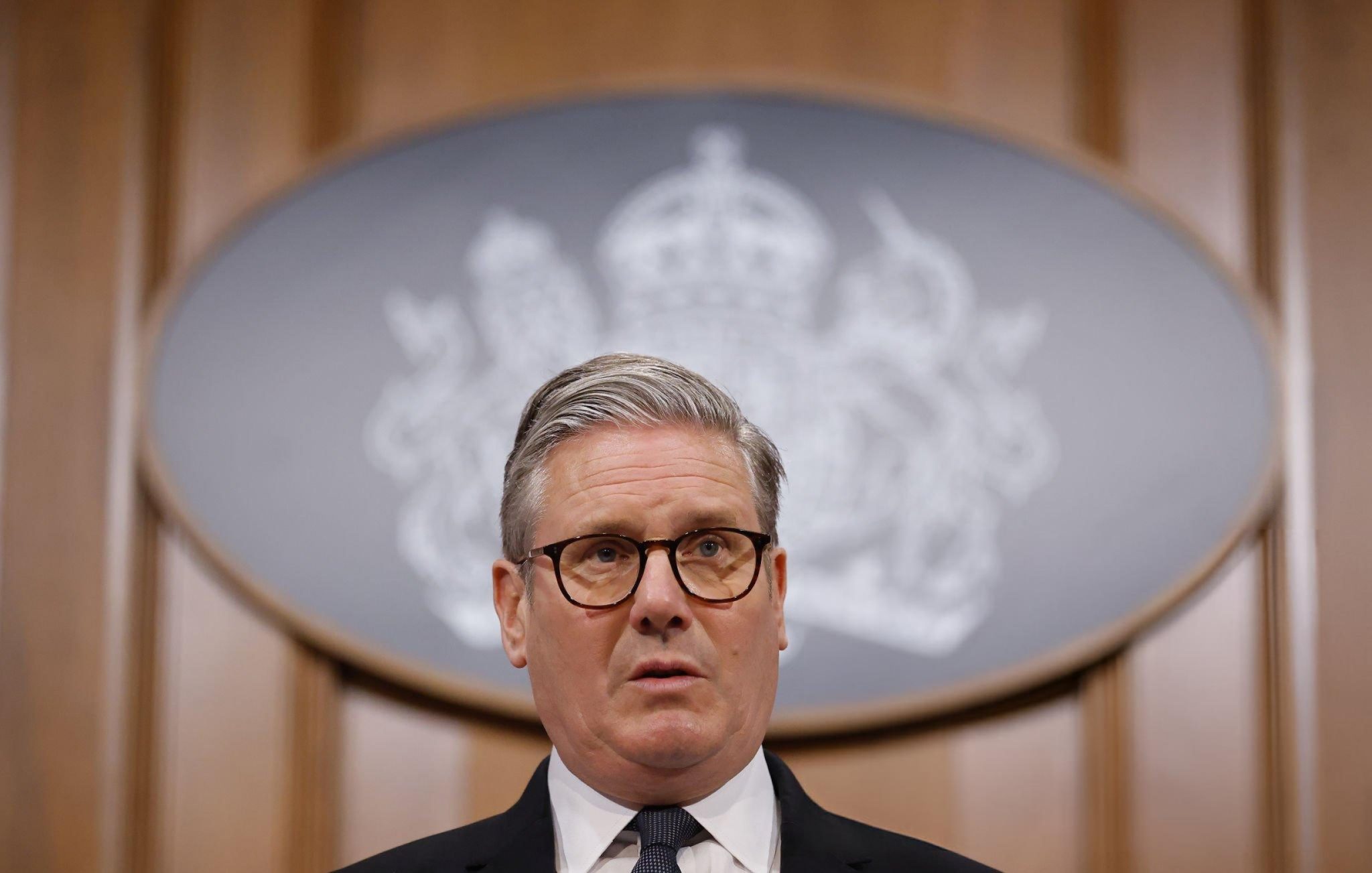UK PM Starmer compared to Enoch Powell as immigration white paper sparks backlash from indian diaspora
LONDON: Prime Minister Keir Starmer is facing fierce criticism and unfavourable comparisons to the infamous Enoch Powell after unveiling his government’s controversial new immigration white paper, which warns that mass migration risks turning Britain into an “island of strangers”. The paper, introduced on monday, has sparked an immediate backlash, particularly from the Indian diaspora, who say the measures disproportionately target Indian nationals and threaten to undermine Britain’s long-standing ties with India.
The parallels drawn between Starmer’s remarks and Powell’s notorious 1968 “Rivers of Blood” speech have intensified political tensions. Powell had warned that unchecked immigration would see the native British population feeling like “strangers in their own country”, a sentiment Starmer’s critics say the prime minister dangerously echoed.
Suspended labour MP Zarah Sultana was among the most vocal in her condemnation, tweeting: “The prime minister imitating Powell’s ‘Rivers of blood’ speech is sickening. That speech fuelled decades of racism and division. Echoing it is a disgrace.” Sultana and others in the labour Party’s progressive wing fear that Starmer’s rhetoric is legitimising far-right narratives under the guise of “controlled” migration.
Downing street swiftly rejected these accusations. In a statement to The Times of India, the prime minister’s official spokesperson said: “The prime minister rejects those comparisons and stands behind the argument he made—that migrants make a massive contribution to our country, but migration needs to be controlled, fair, and at lower levels.”
Despite these clarifications, the reaction from Britain’s care sector and Indian diaspora has been one of shock and alarm. The announcement that health and care worker visas will be scrapped—a route predominantly used by Indian nationals—has sent ripples through the struggling care industry.
Nicola Spedding, manager of Heron Hill Care Home in Kendal, which employs 50% of its staff from India, said the policy would have devastating consequences. “This will impact us greatly. Lots of British people don’t want these jobs. We won’t be able to find enough people in the UK. We have already been told not to sponsor any new staff. We’ve put out an advert for a healthcare assistant and all the applications are from overseas. Some of my Indian staff are quite worried. Some care homes may have to close if they can’t find the staff,” Spedding warned.
The student community is also feeling the heat. Vijaykumar Pydi, media head of the Indian National Student association UK, said the curtailment of the graduate visa route from two years to 18 months would act as a major deterrent for Indian students considering the UK. “Agents in India are telling students they will get professional jobs and international exposure here, but that’s not the reality. There are not enough jobs in the UK and some companies won’t recruit people on graduate visas, and also the salary threshold for skilled worker visas is high. Ninety per cent of Indian students are working the same part-time jobs they had when they were students, even while on graduate visas. Only ten per cent are getting graduate-level jobs.”
Pratik Dattani, founder of the think tank Bridge India, said the new rules would make obtaining British citizenship significantly more difficult and criticised the Labour government’s sharp shift to the right on immigration. “It is surprising how rightward the Labour government has moved. This will create a negative perception of studying and working in the UK. The message this sends to India and the wider Commonwealth is damaging and will impact not only migration but also trade, diplomacy, and Britain’s image as an open society.”
With criticism mounting from all sides, the immigration white paper’s future looks uncertain, as calls grow for Starmer to revise or roll back the more contentious proposals.






